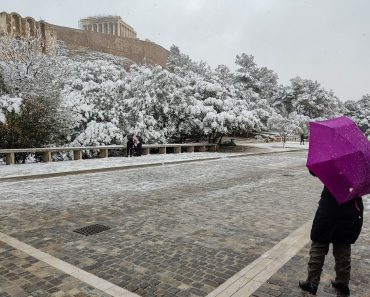Friday, January 17, 2025

The Greek government is taking bold action to combat overtourism and restore balance to its neighborhoods, launching an all-out battle against the short-term rental giants like Airbnb. With a record-breaking 35 million tourists expected to flock to Greece in 2024, authorities are pulling the brakes on an industry that has skyrocketed the nation’s tourism revenue but left its residents grappling with unaffordable housing and overrun neighborhoods.
Airbnb vs. Greek Culture: A Battle for Survival
Holiday rentals have become the darling of Greece’s booming tourism sector, directly contributing to 13% of the country’s GDP in 2023. However, the dark side of this success story has emerged: skyrocketing rents, displaced locals, and neighborhoods stripped of their cultural essence. In response, Greece’s parliament is debating a controversial bill that promises to reshape the tourism landscape.
Drastic New Rules for Short-Term Rentals
Under the proposed legislation, only properties with primary residential use will qualify for short-term rentals. This means no more underground spaces, renovated warehouses, or basements masquerading as cozy holiday stays. The aim? To ensure that rental spaces provide natural light, ventilation, and air conditioning—basic comforts for travelers while maintaining livable conditions for residents.
High-Stakes Debate in Parliament
Opposition lawmakers have criticized the government’s approach, arguing that the legislation fails to address the deeper societal impacts of overtourism. They claim the government’s policies prioritize profits over people, allowing entire neighborhoods to be transformed into tourism hotspots while local residents are forced to move out. Areas like Kolonaki, Koukaki, and Exarchia in Athens, already under a one-year ban on new rental licenses, have become battlegrounds in this heated debate.
The Financial and Social Toll
While Greece’s tourism industry is expected to hit an all-time high with €22 billion in revenue, this success comes at a cost. Studies reveal that in 2023, holiday rental rooms equaled hotel accommodations nationwide but doubled hotel capacity in central Athens. This unchecked expansion has fueled a housing crisis, with locals struggling to afford rent in tourist-heavy areas.
A Fine Line Between Growth and Sustainability
The government is walking a tightrope, aiming to balance economic growth with housing accessibility. To sweeten the deal, they’re offering tax incentives for property owners to pivot from short-term rentals to long-term leasing. Tourism Minister Olga Kefalogianni emphasized that the proposed rules are designed to ensure the long-term, sustainable development of Greek tourism.
Airbnb Crackdown: What It Means for Travelers
If passed, the new law will introduce hefty fines for violators, with penalties reaching up to €20,000. Travelers may soon find their favorite Athens rentals disappearing from platforms like Airbnb. Meanwhile, hotels and traditional accommodations are expected to see a resurgence as they comply with stricter safety and operational standards.
Looking Ahead
As the Greek parliament debates this pivotal legislation, the world watches. Will Greece’s bold gamble pay off, setting a precedent for sustainable tourism worldwide? Or will the allure of short-term profits derail its vision of balance and sustainability? One thing is certain: the fight to reclaim Athens and preserve Greece’s cultural identity is far from over.
Read Travel Industry News in 104 different regional language platforms
Get our daily dose of news, by subscribing to our newsletters. Subscribe here.
Watch Travel And Tour World Interviews here.
Read more Travel News, Daily Travel Alert, and Travel Industry News on Travel And Tour World only.









